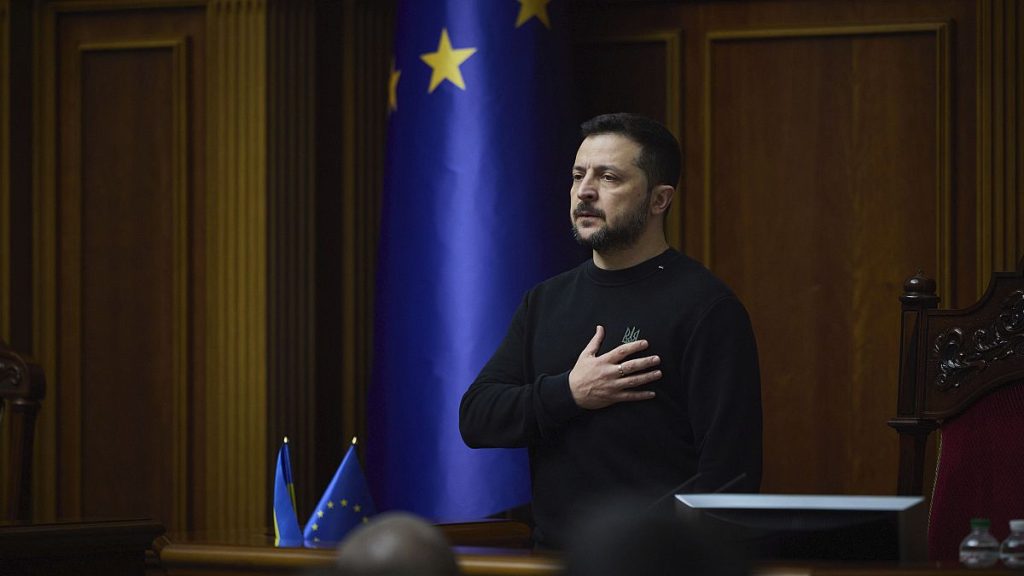Declining Trust in Zelenskyy: A Year of Shifting Public Opinion
As the Russia-Ukraine war grinds on, Ukrainian President Volodymyr Zelenskyy faces a slow erosion of public trust. A December 2024 survey by the Kyiv International Institute of Sociology (KIIS) reveals that while a majority (52%) still express confidence in his leadership, a significant portion (39%) now harbors distrust, with 9% remaining undecided. This represents a noticeable decline from the overwhelming support he enjoyed at the end of 2023 (77%). While Zelenskyy maintains a net positive approval rating (+13%), the downward trend raises questions about the factors contributing to this shift and its potential implications for Ukraine’s future.
The decline in trust appears to be correlated with specific events throughout 2024. In February, the dismissal of General Valerii Zaluzhnyi as commander-in-chief of the Armed Forces coincided with a 5-point drop in Zelenskyy’s approval. This suggests that changes in military leadership, even if justified, can impact public perception of the president’s overall management of the war effort. Further declines followed in May, potentially linked to the signing of an unpopular mobilization law lowering the draft age and simplifying conscription procedures. This measure, while necessary for maintaining troop strength, likely fuelled anxieties among the populace, impacting trust in the government.
The autumn of 2024 witnessed a renewed Russian offensive in the east, targeting Pokrovsk and Kurakhove. This intensified fighting, reminiscent of the early stages of the invasion, likely contributed to a further dip in Zelenskyy’s approval ratings. The relentless pressure of a protracted war, coupled with the tangible threat of escalating violence, can understandably erode public confidence, even in a popular wartime leader. The cumulative effect of these events—leadership changes, controversial legislation, and renewed military pressure—paints a picture of a nation grappling with the ongoing strains of a protracted and brutal conflict.
The KIIS survey highlights a fascinating link between optimism about the future and trust in Zelenskyy’s leadership. Individuals expressing greater optimism about Ukraine’s prospects tend to exhibit higher levels of trust in the president. Conversely, those with pessimistic outlooks are more likely to express distrust. This suggests that Zelenskyy’s ability to inspire hope and project a vision for a positive future plays a crucial role in maintaining public support. As the war continues, maintaining this sense of optimism in the face of ongoing hardship and uncertainty becomes increasingly challenging.
The methodology of the KIIS survey involves telephone interviews with a random sample of 2,000 mobile phone users across government-controlled regions of Ukraine. This approach seeks to capture a representative cross-section of public opinion, though it is important to acknowledge potential limitations, such as the exclusion of occupied territories and the possible underrepresentation of certain demographic groups. Nevertheless, the survey provides valuable insights into the evolving public sentiment towards Zelenskyy’s leadership.
The fluctuations in Zelenskyy’s approval rating underscore the complex and dynamic nature of public opinion during wartime. While initially enjoying widespread support, he now faces the challenge of maintaining public confidence amid a prolonged conflict marked by setbacks and difficult decisions. The link between optimism and trust suggests that effectively communicating a vision for a positive future, even amidst ongoing challenges, is crucial for retaining public support. The ongoing war poses a significant test for Zelenskyy’s leadership, requiring him to navigate complex political and military realities while maintaining the trust and confidence of the Ukrainian people.














